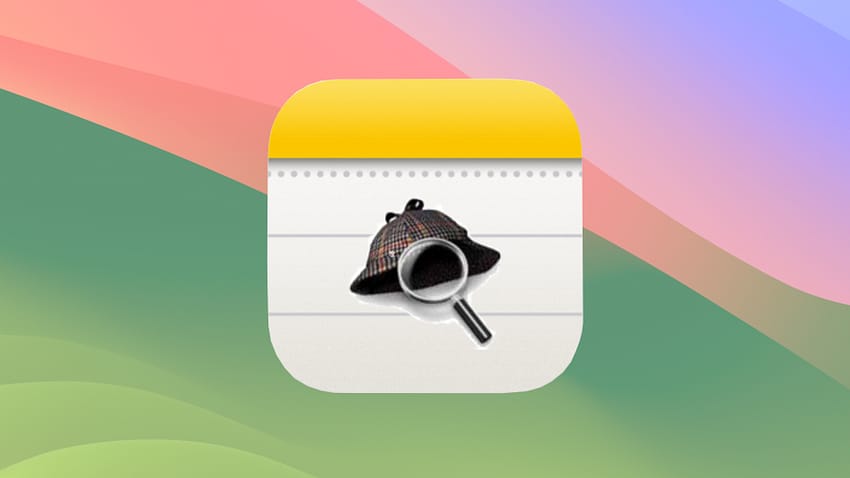When Apple Notes arrived as one of the original 15 apps on the first iPhone, it was a very basic app. Note-taking on the Mac was dominated by Evernote and others and Apple Notes was little more than a very simple text editor. Subsequent releases have significantly bolstered Notes and it is now a viable alternative to commercial apps. And that puts them at serious risk of ‘sherlocking’.
What is sherlocking?
Apple’s history is littered with great applications and utilities. In some cases, the functions they bring to macOS are so compelling that Apple adds them to their software. As result, those third-party apps become redundant and their marketshare shrinks almost instantly.
Back in the 1990s, Apple introduced a feature to Mac OS called Sherlock that enabled you to find content on your Mac. By the early 2000s Dan Wood, an independent software developer, created a companion to Sherlock called Watson. Watson was a $30 app that augmented Sherlock, enabling it to connect to the Internet to grab online information like movie times, foreign exchange rates, weather reports, and lots of other useful information.
With the release Mac OS X 10.2 Sherlock matched almost every Watson feature instantly destroying Watson’s value.
The practice of replicating features of other apps and making them part of the core operating system or default installation is now colloquially known as sherlocking.
The evolution of Apple Notes
Apple Notes started as a simple application that enabled you to tap in short notes such as lists, ideas and other random information that you felt useful to retain. But over the years, Apple has added lots of useful features.
Although Notes was initially an iOS app, it was added to the iPad and OS X 10.8 Mountain Lion. The ability to sync notes over iCloud (originally, Notes synchronised across devices using IMAP – a kludge that put synchronised Notes inside Apple Mail) and slew of new features followed over the years. Tools such as Smart Folders, tables, checkboxes and others have been added progressively. And the Apple Pencil further bolsters Notes’ functionality.
The soon to be released iOS 17, now in Public Beta, Notes lets you:
View and mark up PDFs and scans of presentations, assignments, research papers and more. You can also add links to connect related notes, like a trip itinerary and a list of recommended restaurants.
Apple iOS 17 Preview
In short, Apple Notes is now quite a fully featured application. It has moved from being a useful but limited utility, into a highly functional app that will tick the boxes for many power users.
What does this mean for other note-taking apps?
Two things are going to happen with note taking apps.
Apps that don’t substantially add to the functionality that the new version of Notes brings will see their downloads and revenues fall quickly. They will be the first victims of sherlocking. I’ve been a big fan of Notability for many years. It has been my go-to app for taking meeting notes, marking up PDFs, carrying my speaker’s notes for events I facilitate and MC and even drawing simple illustrations.
The only function that Notability brings that makes it better for the way I use Notes is the ability to capture audio and synchronise my note-taking. But, these days, the simplicity of AI-driven transcription services has made that functional almost redundant for me.
And apps that simplify PDF mark ups will also see their market share pummelled.
A second category of apps will evolve. These apps will differentiate themselves by adding more features that will apply to specific cohorts of users. Things like better text management, improved search, cross-platform compatibility (not every uses Apple kit exclusively), and version history will keep some note-taking apps in business – at least until if or when Apple adds those features.
With the new features introduced in iOS 17, Apple Notes will sound the death knell on many note-taking apps. With many, like Notability, moving to subscription service or drastically increasing their prices as is the case with Evernote, we can expect their popularity to plummet.
The sherlocking of many note-taking apps is about to commence.

Anthony is the founder of Australian Apple News. He is a long-time Apple user and former editor of Australian Macworld. He has contributed to many technology magazines and newspapers as well as appearing regularly on radio and occasionally on TV.

